Microsoft Data Governance Tools: What Are Your Options?
Share this article
If you’re looking for Microsoft data governance tools, Microsoft Purview is a good starting point. However, ensuring effective data governance requires using additional tools — open-source or off-the-shelf data governance solutions.
This article will explore Microsoft Purview’s offerings and then consider alternatives to strengthen and streamline your data governance efforts.
Table of Contents
Permalink to “Table of Contents”- Microsoft data governance tools: What are your options within the Microsoft ecosystem?
- Microsoft data governance tools: Alternatives
- Atlan: The best data governance platform to complement Microsoft data governance tools
- Final thoughts
- Related Reads
Microsoft data governance tools: What are your options within the Microsoft ecosystem?
Permalink to “Microsoft data governance tools: What are your options within the Microsoft ecosystem?”Microsoft Purview (previously known as Azure Purview) is Microsoft’s flagship data governance tool for the Azure ecosystem, which includes SQL Server, Azure, Microsoft 365, and Power BI.
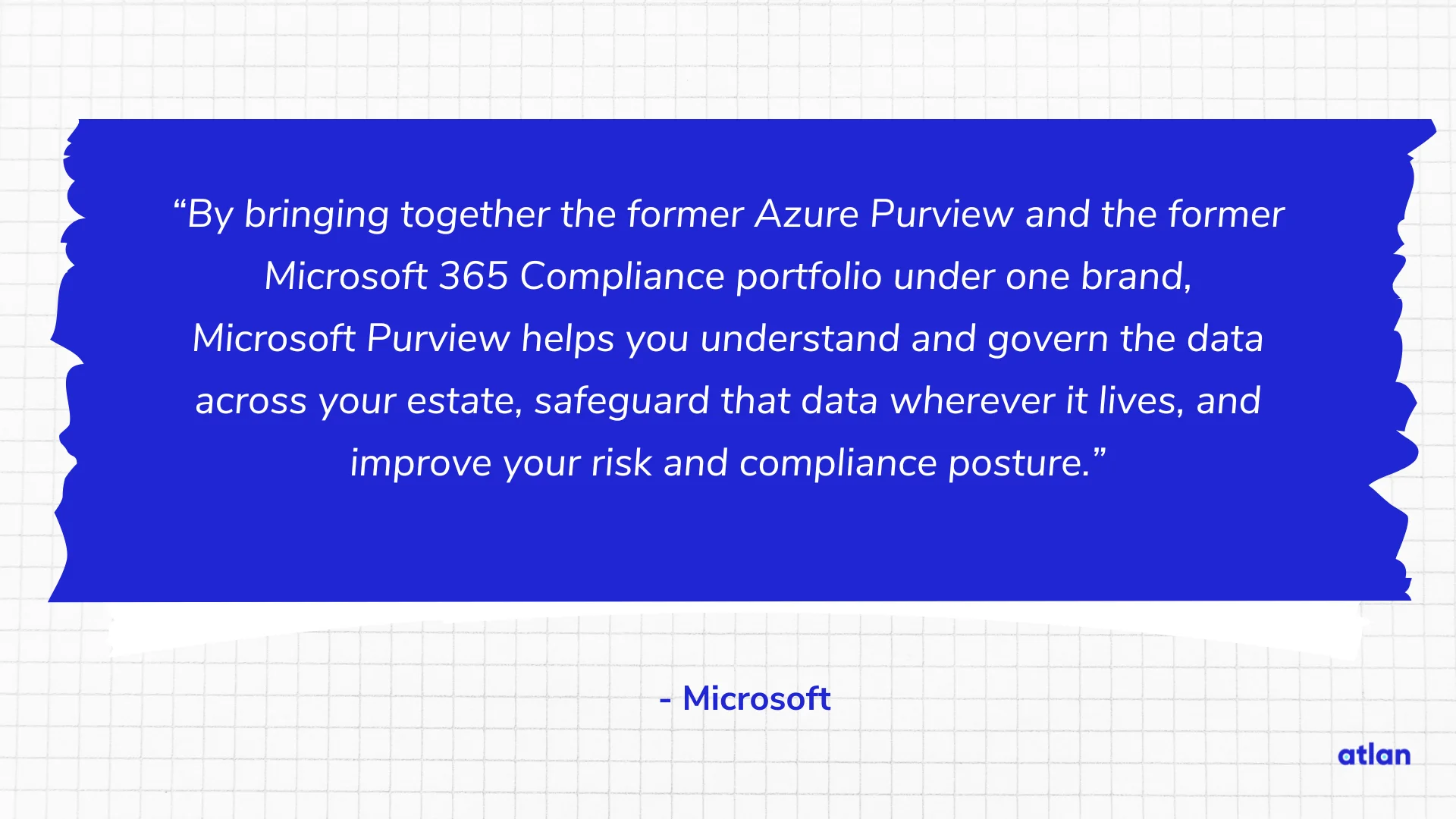
Microsoft Purview helps you understand and govern the data across your estate - Image by Microsoft.
Purview’s governance portal helps you:
- Manage and view Azure data assets
- Define and implement access policies for your Azure ecosystem
- Define and auto-assign business-friendly terminology
- Track data ownership
- Trace data lineage visually
- Measure metrics for data quality, data catalog adoption, data asset classification, etc.
- Share data without compromising data asset privacy or security
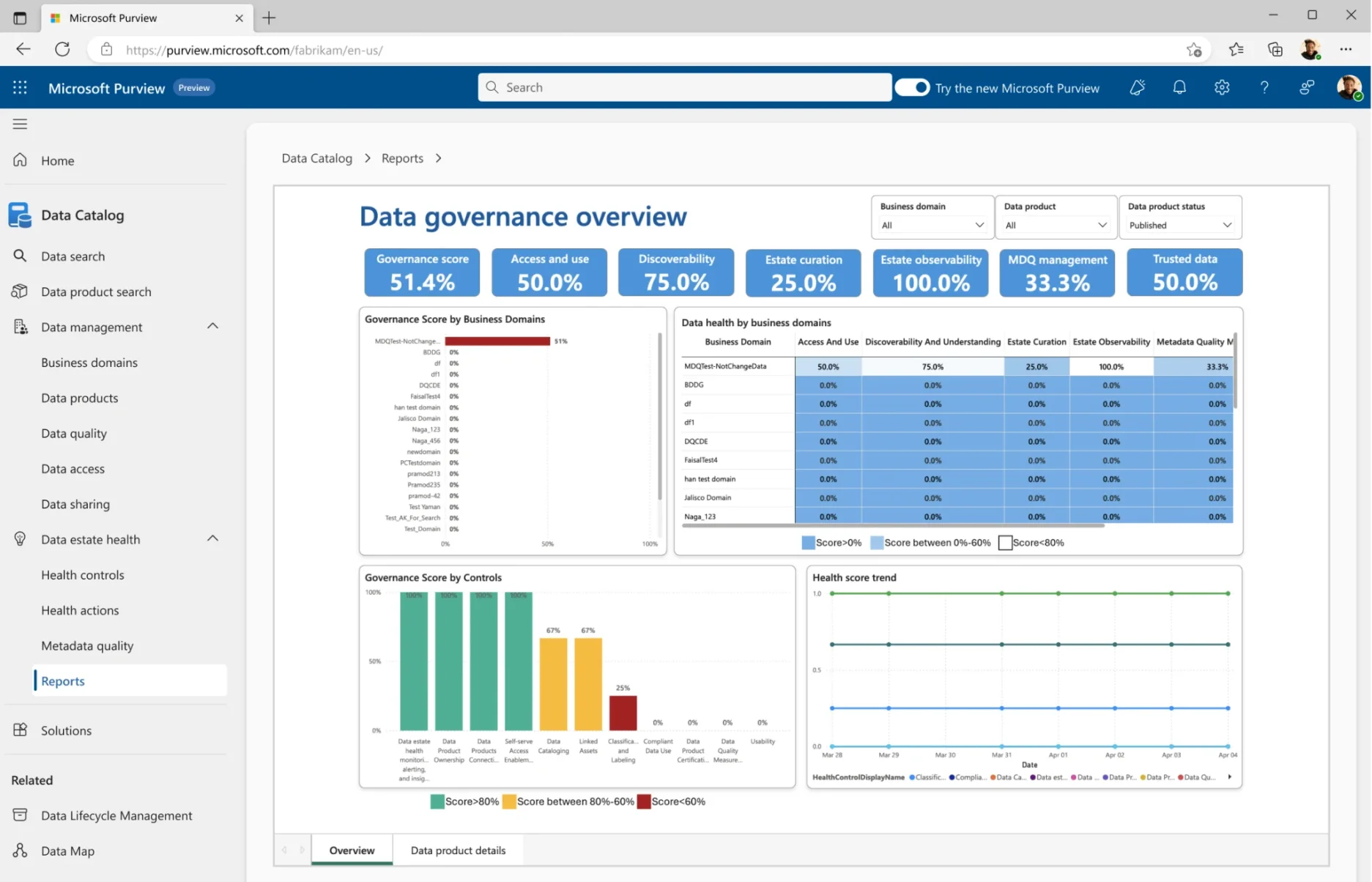
A sample data governance report in Microsoft Purview - Image by Microsoft Blog.
Purview includes several applications, such as Data Catalog, Data Map, Data Sharing, Data Estate Insights, and Data Policies, to enable data governance across the Azure data estate.
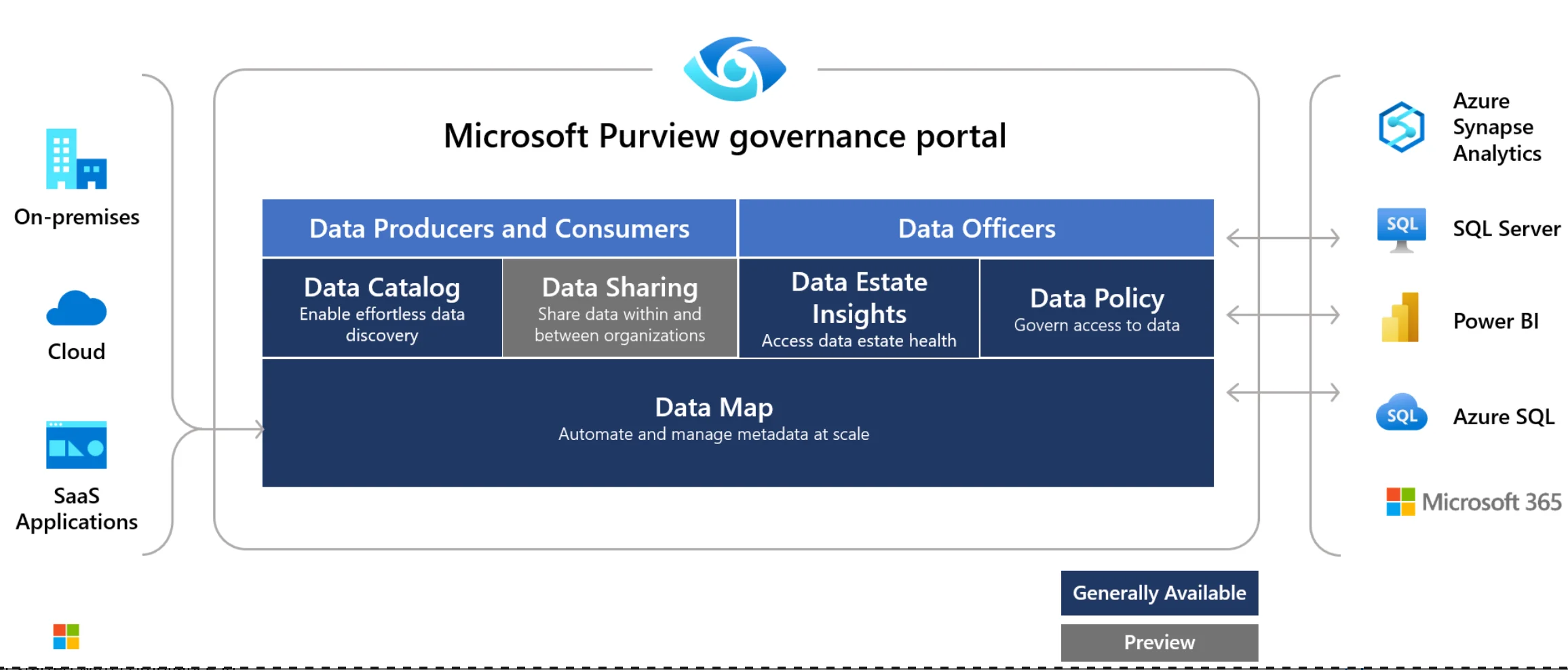
Microsoft Purview governance portal - Image by Microsoft Purview Documentation.
Let’s briefly explore these apps further:
-
Data Catalog: Find data assets, add context with a business glossary, automatically tag assets with the right glossary terms, and trace the lineage of your Azure assets visually
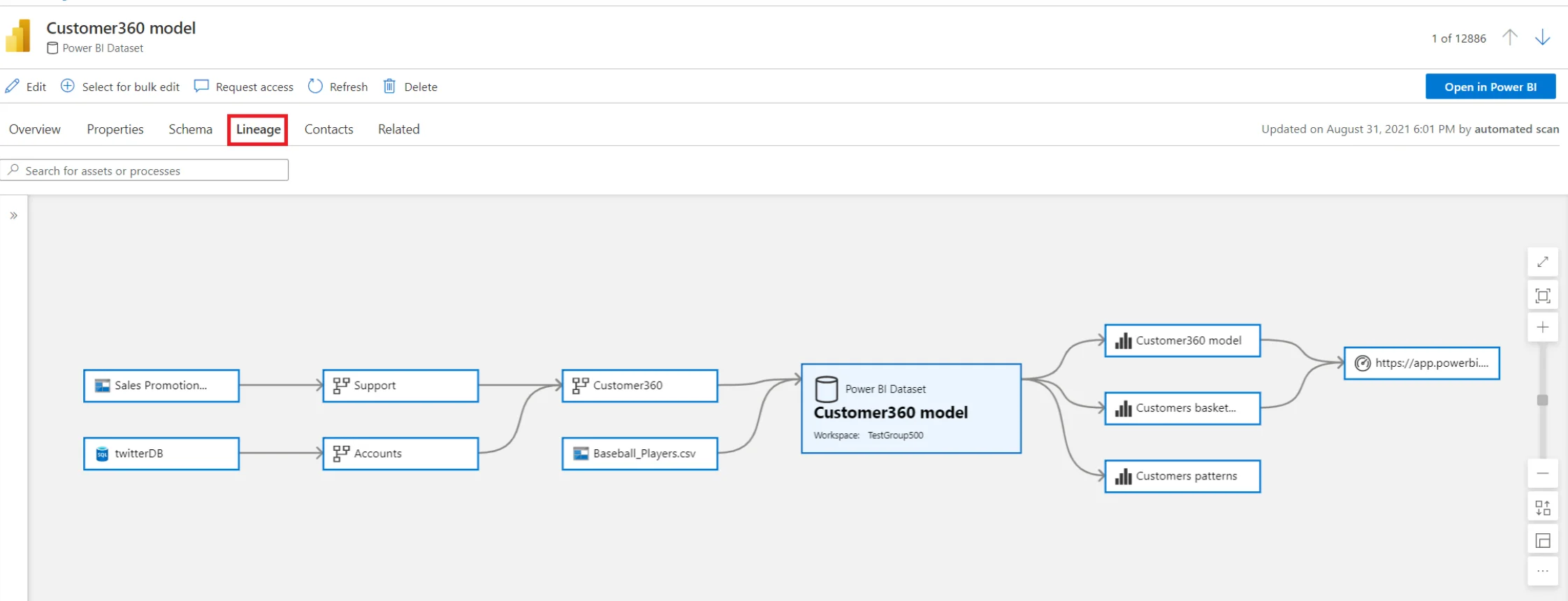
Data lineage in the Microsoft Purview Data Catalog - Image by Microsoft Purview Documentation.
-
Data Map: Integrates metadata and asset descriptions into a comprehensive map of your Azure data estate by automatically scanning and classifying data assets (including sensitive data)
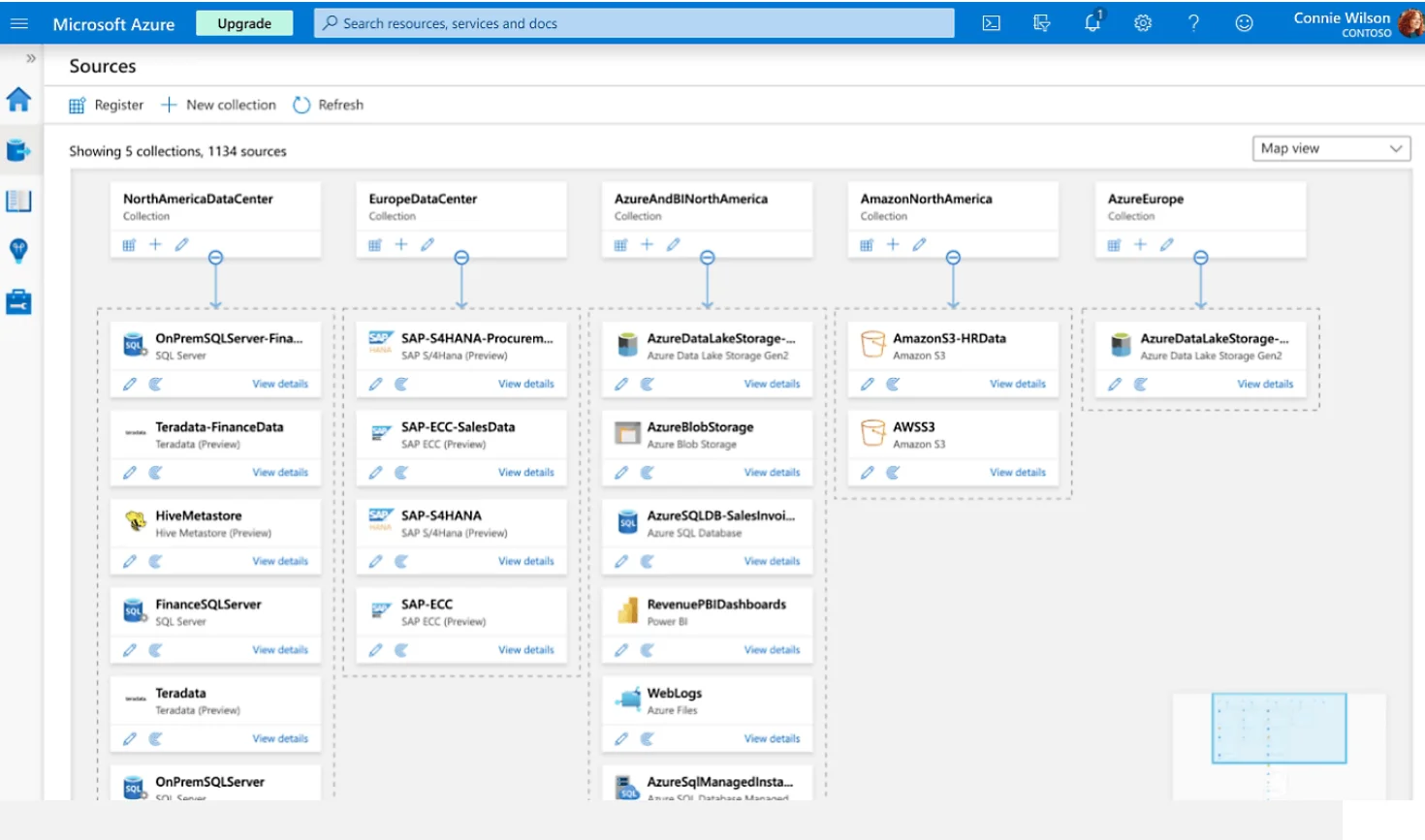
Microsoft Purview Data Map - Image by Microsoft Purview.
-
Data Estate Insights: Gives an overview of your Azure data estate, with dashboards to track the current health status of your Azure data estate, asset ownership, data catalog adoption, classification, glossary entries, and sensitivity labels
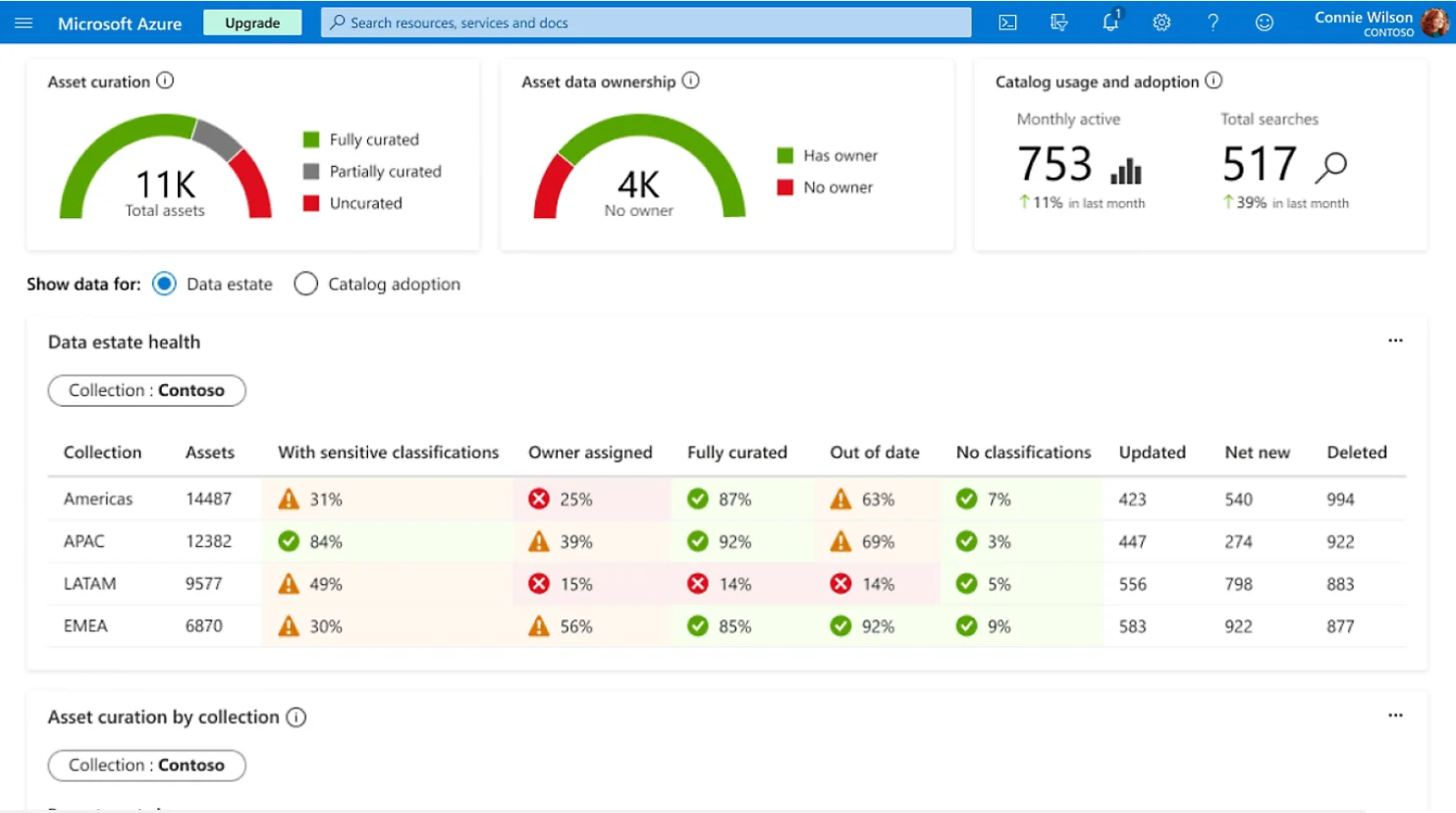
Microsoft Purview Data Estate Insights - Image by Microsoft Purview.
Microsoft Purview Data Estate Insights. Source: Microsoft Purview
-
Data Sharing: Allows secure and compliant data sharing with both internal and external users (business partners and customers)
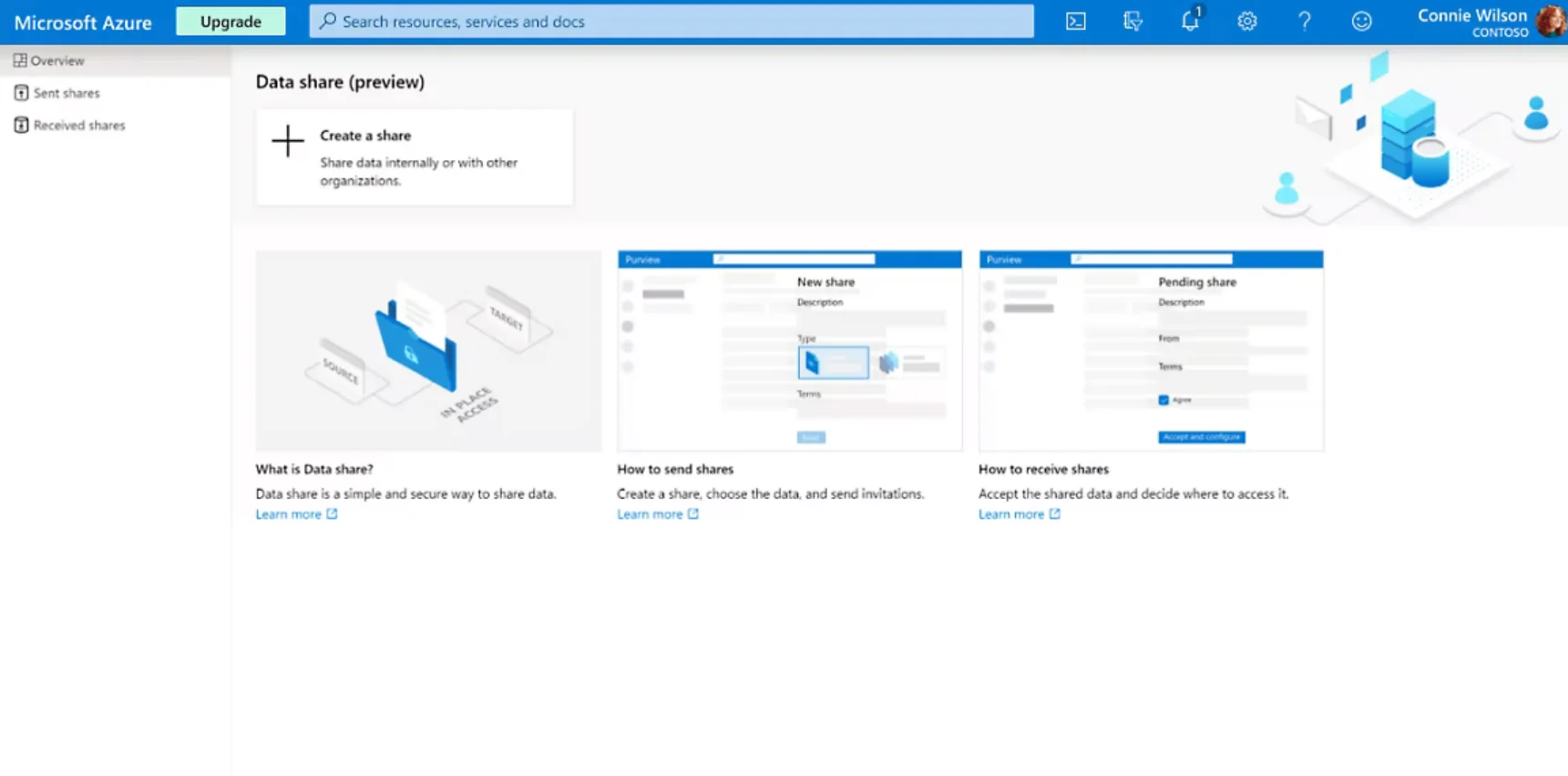
Microsoft Purview Data Sharing - Image by Microsoft Purview.
-
Data Policy: Helps define permissions and provision access to your Azure data assets
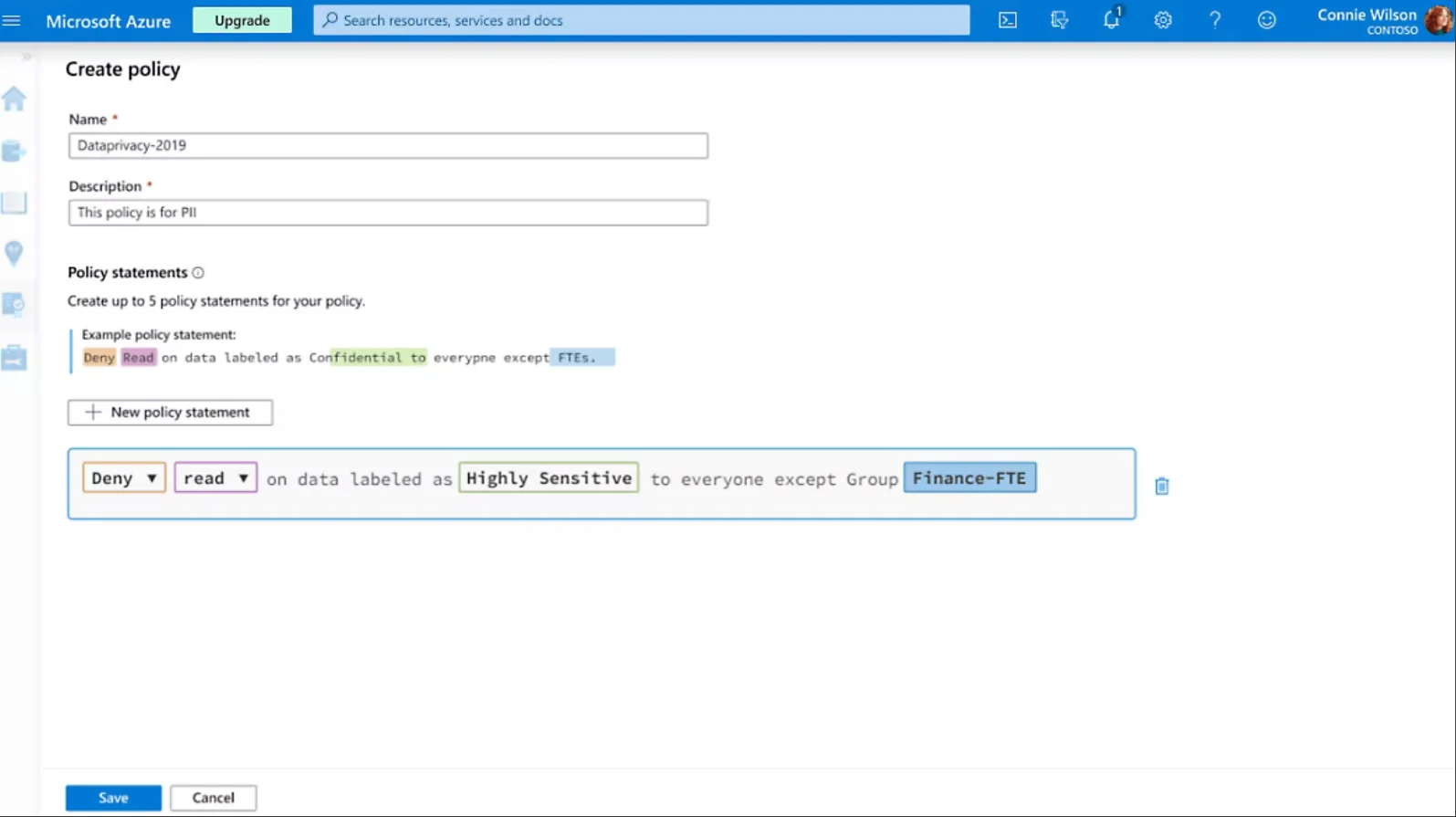
Microsoft Purview Data Policy - Image by Microsoft Purview.
Also, read → Data governance benefits on Azure
Are there any other data governance tools in Microsoft’s ecosystem?
Permalink to “Are there any other data governance tools in Microsoft’s ecosystem?”Besides Microsoft Purview, Microsoft offers other tools to handle specific aspects of data governance, such as compliance, privacy, and security.
For instance, Microsoft Priva is a set of solutions for privacy risk management, consent management, privacy assessments, standardized compliance, and more.
Meanwhile, Compliance Manager helps you automatically assess and manage compliance across your multi-cloud environment.
It’s crucial to note that these tools are interoperable with Microsoft Purview, allowing you to centralize your data governance efforts.
Microsoft data governance tools: Alternatives
Permalink to “Microsoft data governance tools: Alternatives”While Microsoft Purview offers a good foundation for data governance, organizations with multi-cloud data environments or specific requirements may find that their needs extend beyond the capabilities of Microsoft’s ecosystem.
For instance, if your main data lake is Databricks or your data warehouse is Snowflake, then you need a data governance solution that can accommodate these modern data tools.
Best-in-class cloud agnostic solutions can provide greater flexibility, broader compatibility, and specialized features tailored to unique data governance challenges.
Atlan: The best data governance platform to complement Microsoft data governance tools
Permalink to “Atlan: The best data governance platform to complement Microsoft data governance tools”Here’s how Atlan enhances and extends Microsoft Purview’s existing data governance capabilities:
-
Lineage for a single pane of glass: Atlan reaches every corner of the data estate with out-of-the-box connectors and open APIs to track lineage at the granular table and column level. As such, you can see where a particular asset came from, all the way to its source.
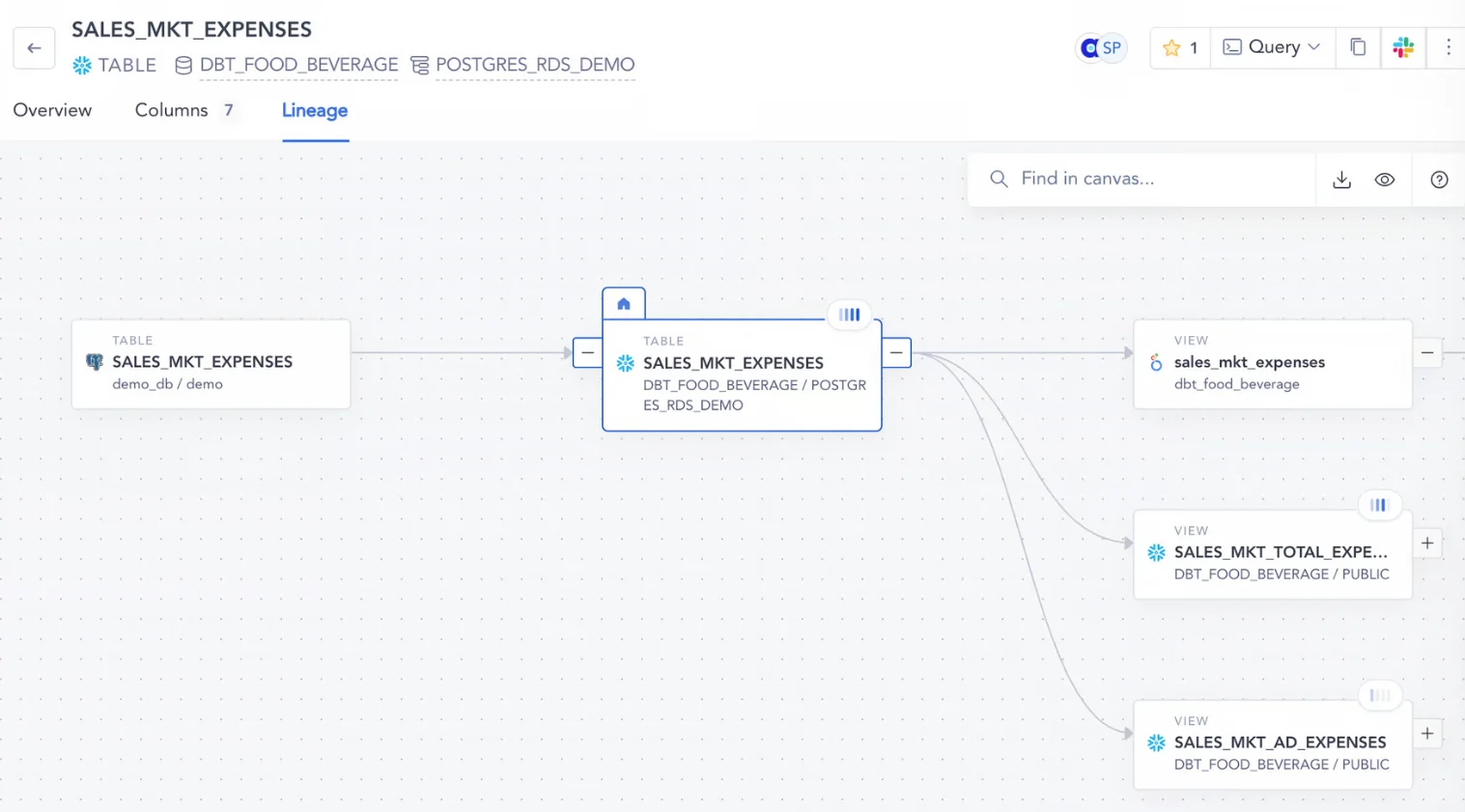
Actionable, cross-system, column-level lineage mapping in Atlan - Image by Atlan.
Atlan also makes lineage actionable by embedding it into your workflows. So, if you notice a data issue, you can quickly investigate its lineage, create a ticket in Jira, and notify downstream consumers via Atlan announcements or Slack. This makes root cause and impact analysis a breeze.
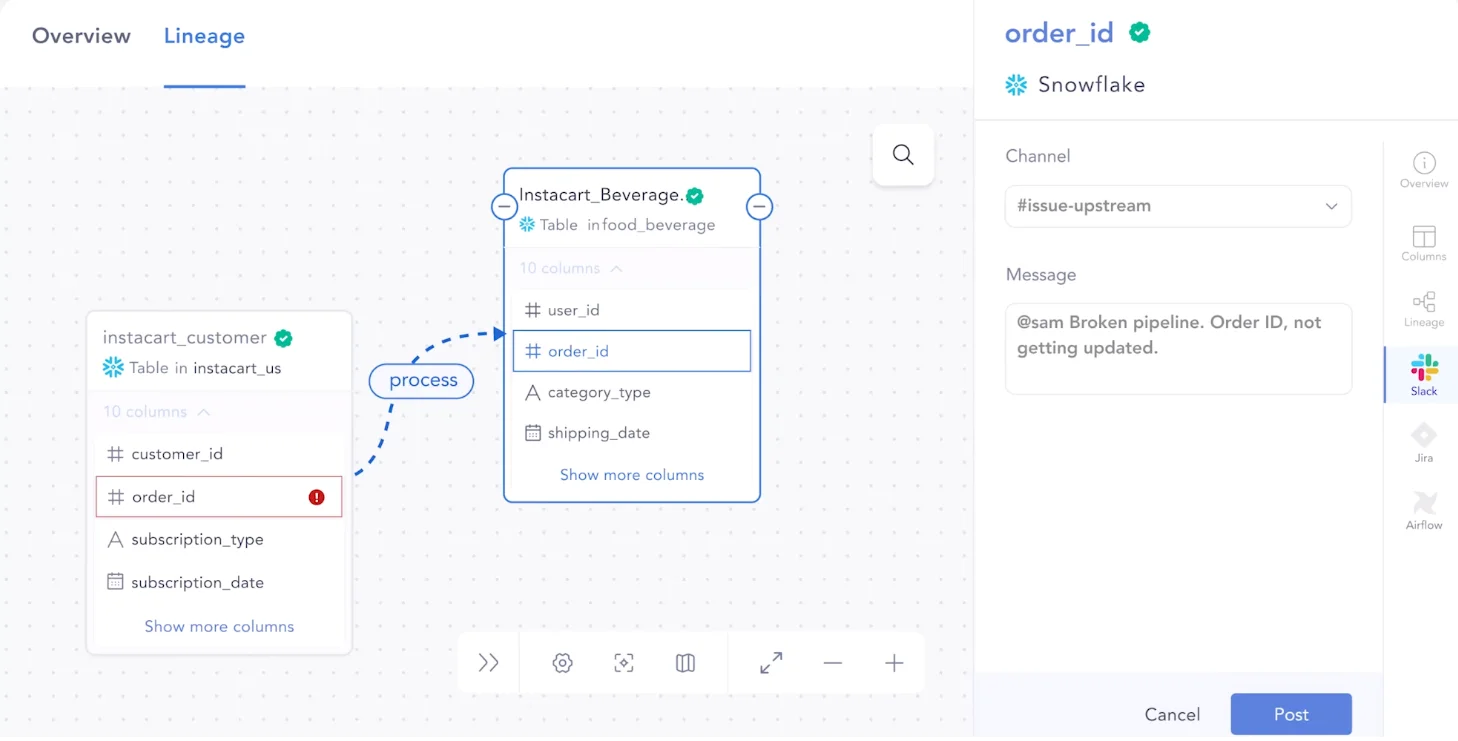
Embedded collaboration in action — posting a message on Slack from Atlan, via lineage - Image by Atlan.
-
Automation for faster time-to-value: Several governance projects fail because it’s tedious (or impossible) to map the entire data estate and maintain accurate, updated metadata for every asset. Atlan has built automations to capture and contextualize metadata, auto-propagate data asset classification, auto-generate audit logs and more.
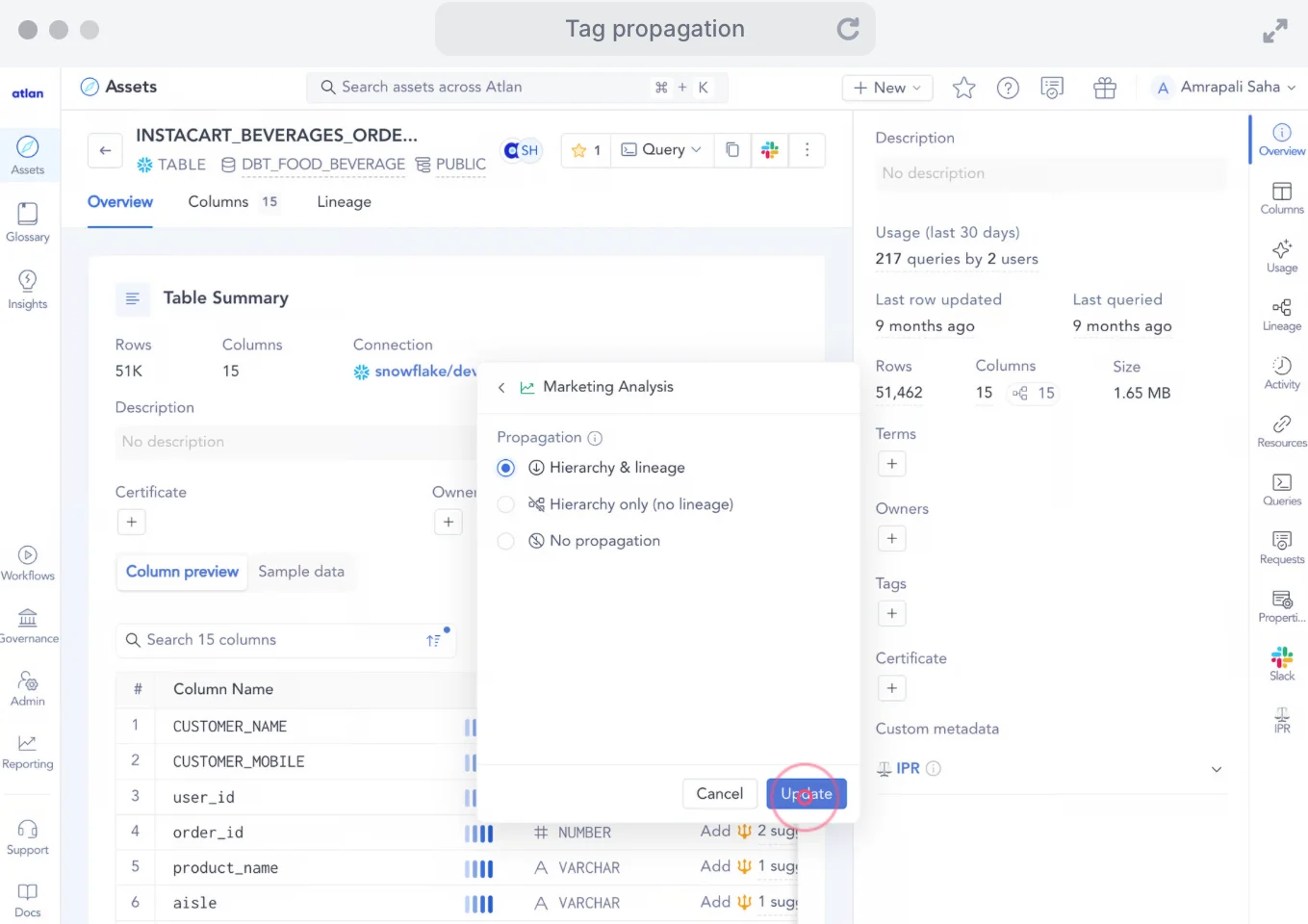
Automatic policy propagation by hierarchy or lineage (or both) in Atlan - Image by Atlan.
Additionally, Atlan AI can auto-suggest documentation based on metadata, such as source code, query logs, and usage patterns, adding better context to your Azure data assets.
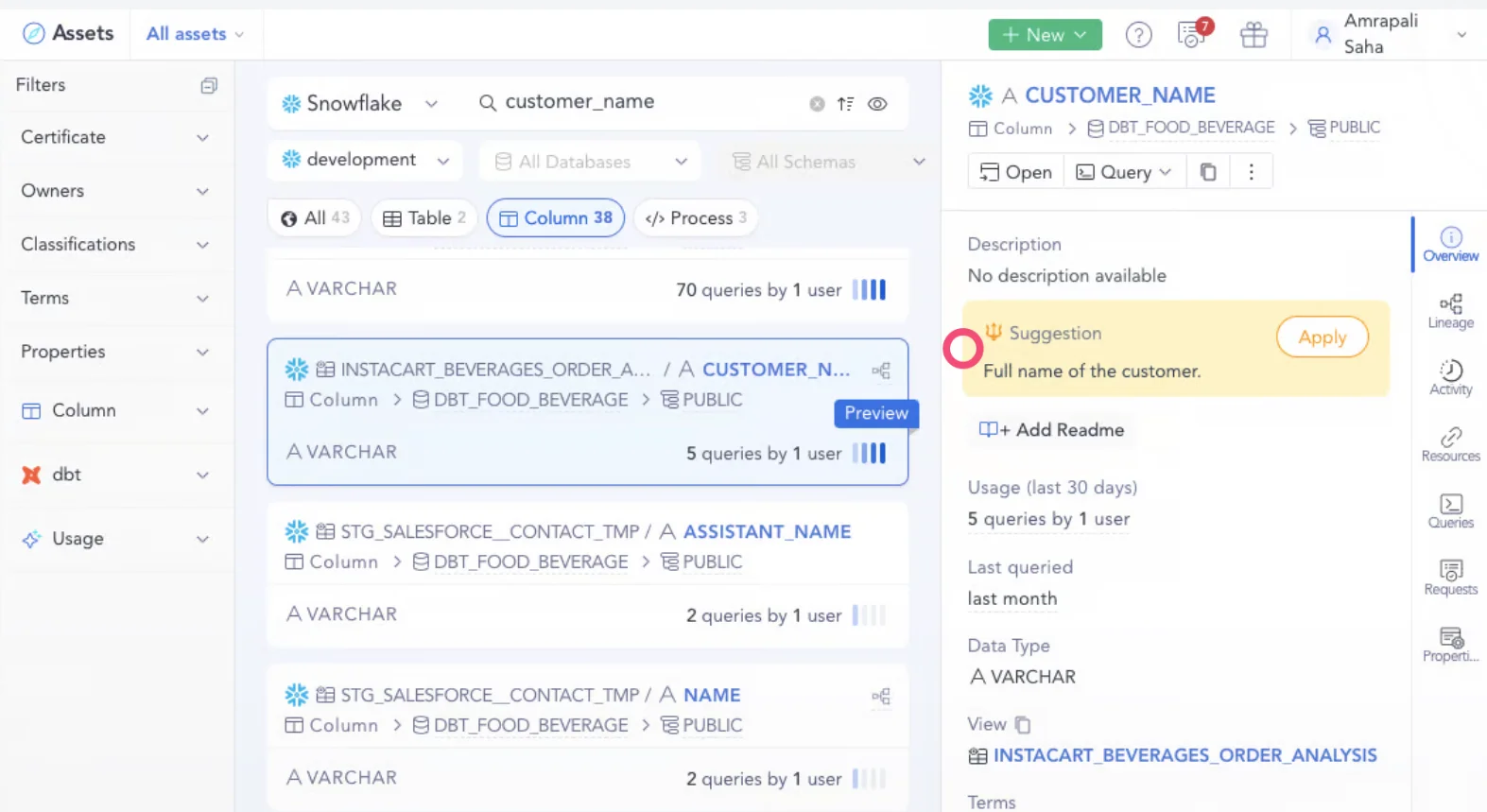
Atlan AI suggesting descriptions after reviewing the metadata of similar assets - Image by Atlan.
-
Configurable and flexible (per domain, personas, and projects): You can curate personalized experiences for different roles and types of users with Personas and Purposes. You can also customize granular access policies (for data and metadata) for diverse users and groups and set up custom masking policies and permissions.
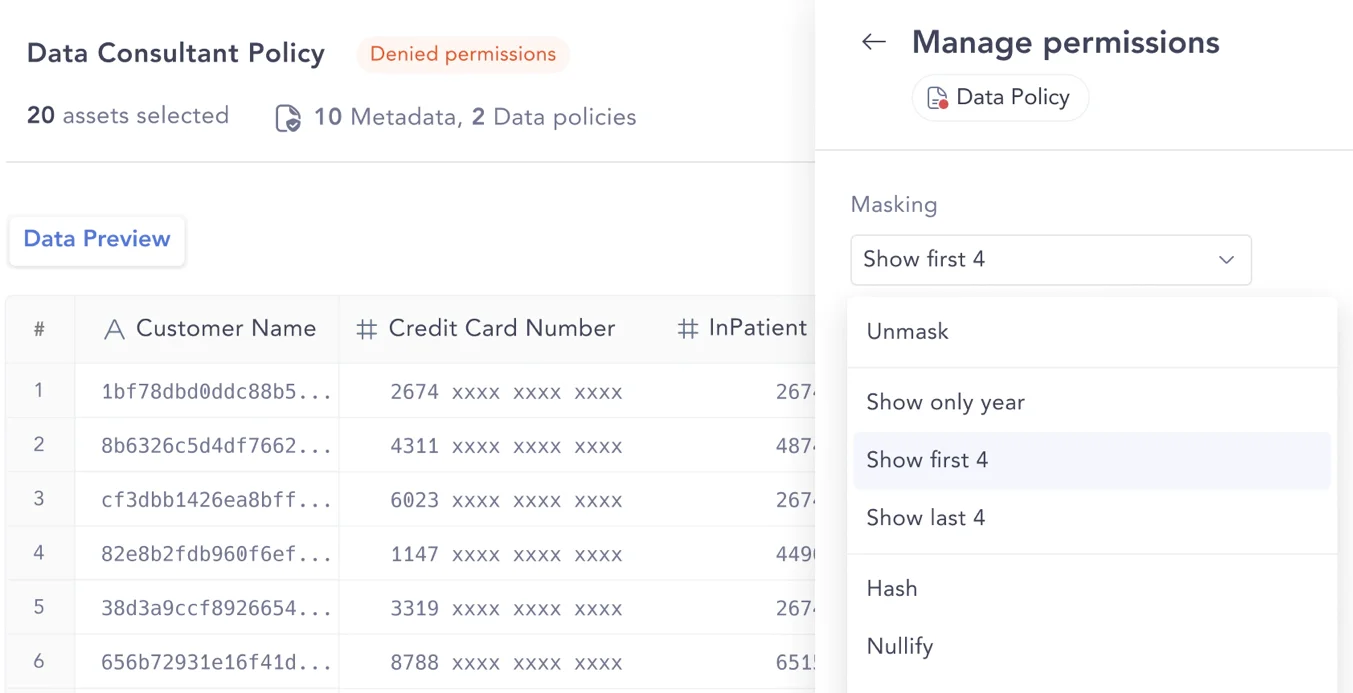
Masking and hashing policies in Atlan - Image by Atlan.
-
Extensible platform approach: Atlan’s open architecture makes it easier to connect the platform with various tools in your data stack and quickly introduce new capabilities, while enforcing data governance policies at the source. As a result, you can set up a well-governed data estate at scale, without compromising security or compliance.
How Yape, Telefónica Tech, Commonwealth, and Tide transformed their data governance initiatives with Atlan
Permalink to “How Yape, Telefónica Tech, Commonwealth, and Tide transformed their data governance initiatives with Atlan”Yape
Consider Yape, the largest digital wallet in Peru. Yape’s data stack is based on Microsoft Azure and Databricks is their primary data source.
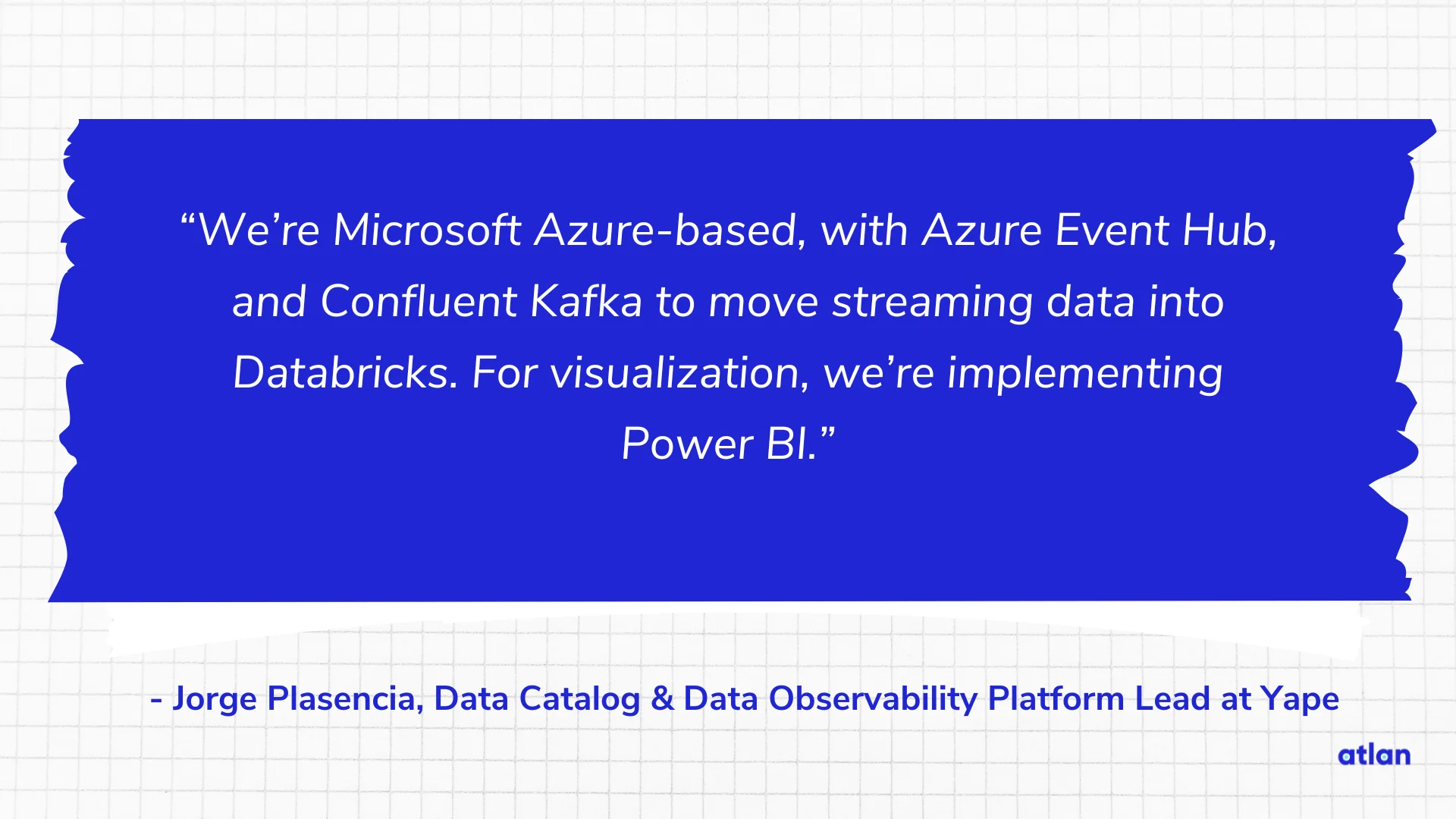
Yape chose Atlan as its data governance solution because of its simple UI, extensive connectivity with Yape’s data ecosystem, and rich documentation. Yape particularly observed that Atlan had “the best UI in the market,” bringing them a step closer to democratizing access to data.
Telefónica Tech
Argentinian telecommunication enterprise Telefónica Tech also has a stack based on Microsoft Azure. They use Data Factory for orchestration, Databricks for ETL, blob storage, and data lake, and Snowflake as the data warehouse.
Telefónica Tech adopted Atlan to facilitate end-to-end visibility and traceability, while strengthening security.
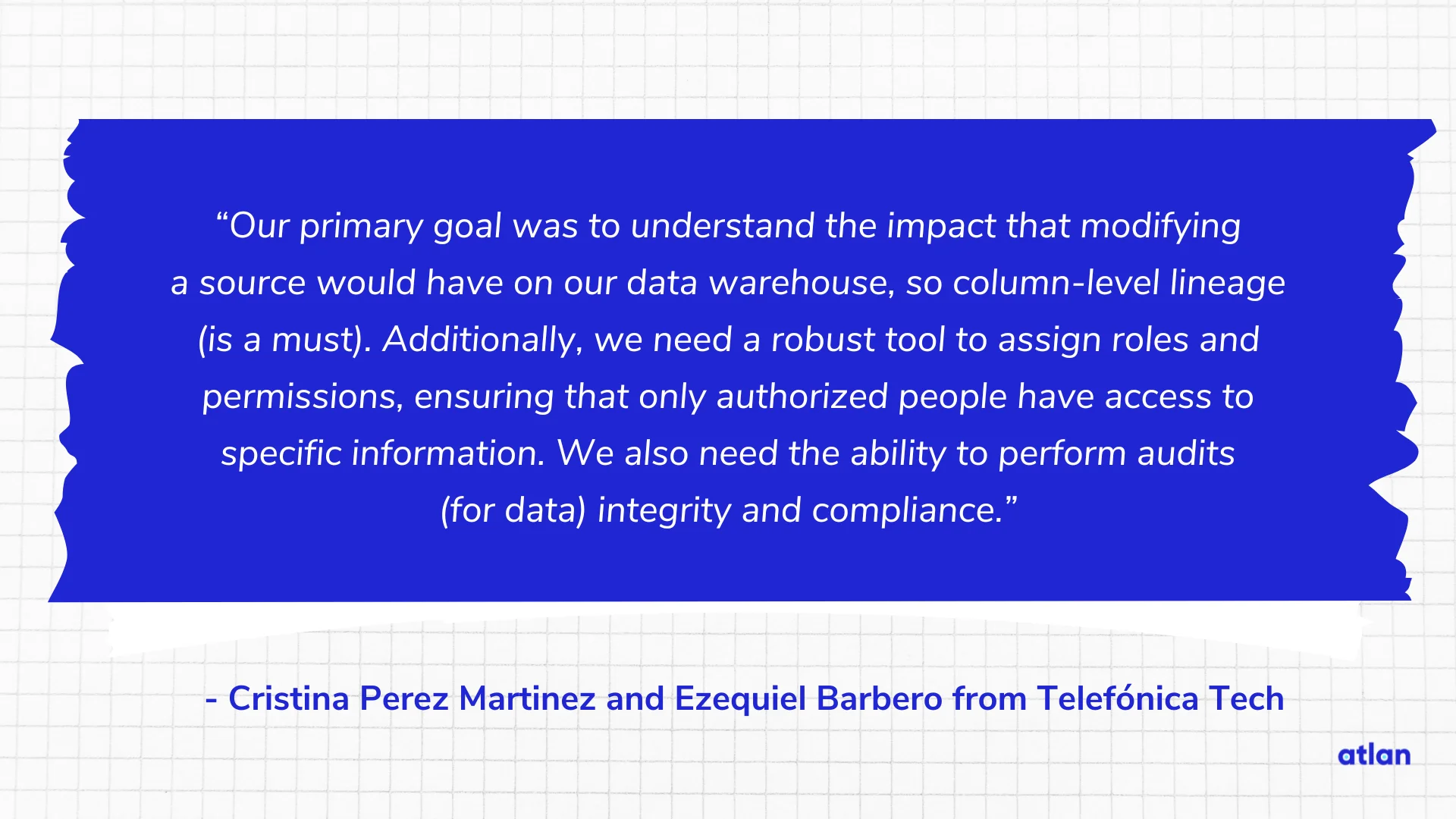
Telefónica Tech adopted Atlan to facilitate end-to-end visibility and traceability - Image by Cristina Perez Martinez and Ezequiel Barbero from Telefónica Tech.
Commonwealth
Similarly, the financial services firm Commonwealth, also running on Azure, assessed data catalog solutions primarily based on their user-friendliness for non-technical users.
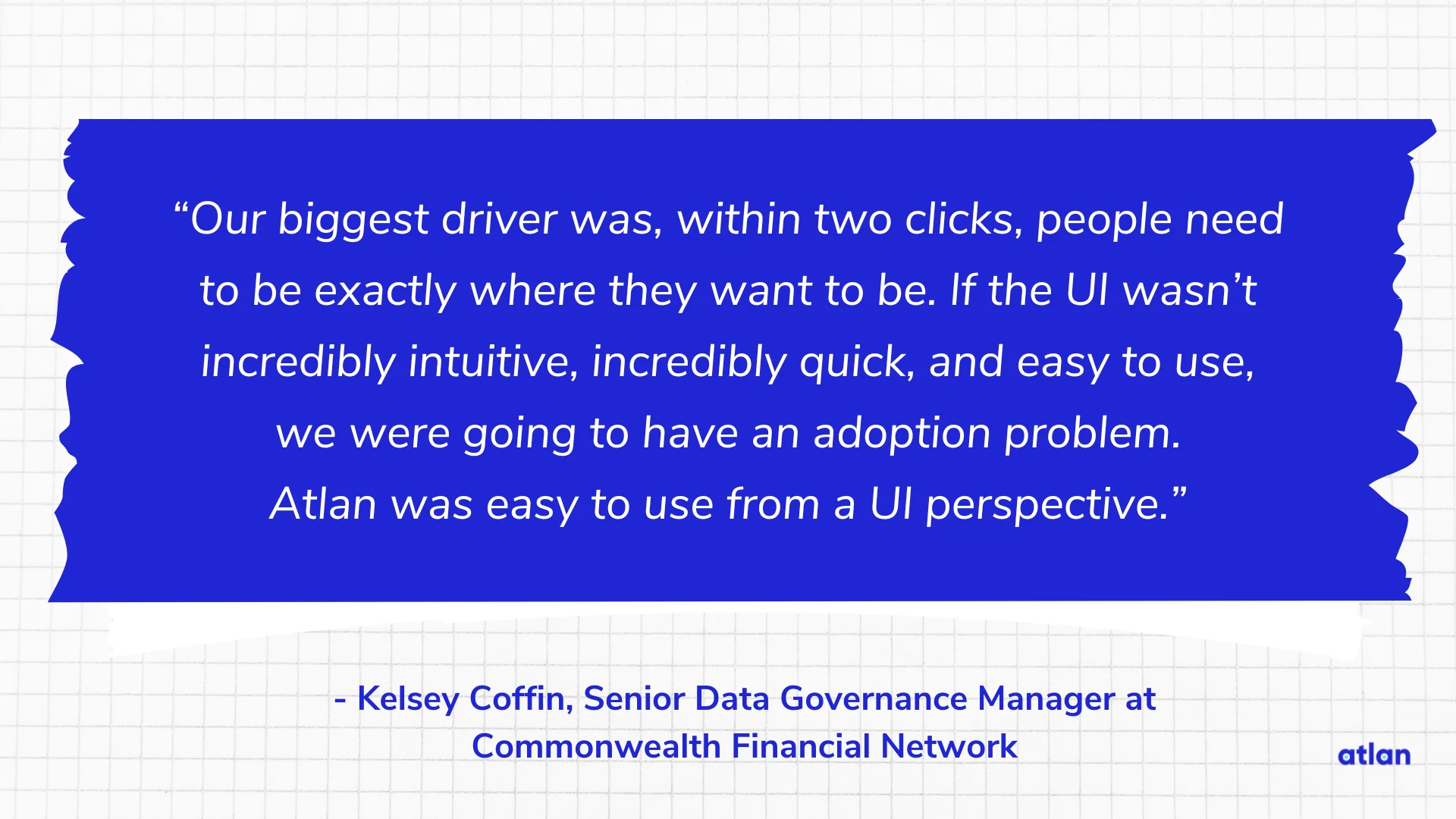
Tide
Meanwhile, Atlan’s automation and AI capabilities can dramatically shorten the time spent on documentation, data classification, compliance audits, etc., which benefits a massive financial services firm like Tide.
Tide combined its lineage information with Atlan Playbooks to create automated processes that identified, tagged, and classified all sensitive information throughout its data estate. Initially, Tide had anticipated this compliance exercise would take 50 days; however, with Atlan’s column-level lineage and automation, those 50 days became five hours.
Final thoughts
Permalink to “Final thoughts”Microsoft’s data governance ecosystem, led by Purview, helps you manage your data estate in the Microsoft ecosystem, i.e., SQL Server, Azure, Microsoft 365, and Power BI.
For mature organizations requiring greater flexibility, broader compatibility, and automation, coupled with a user-friendly interface, best-in-class solutions like Atlan may prove more beneficial. This is evidenced by the success of companies like Yape, Telefónica Tech, Commonwealth, and Tide.
Microsoft Data Governance Tools: Related Reads
Permalink to “Microsoft Data Governance Tools: Related Reads”- Automated Data Governance: How Does It Help You Manage Access, Secure & More at Scale?
- Data Governance vs. Data Compliance
- Data Governance and Compliance: Act of Checks & Balances
- Data Governance vs. Data Classification
- Data Classification and Tagging
- 7 Best Practices for Data Governance
- What is Data Governance? It’s Importance, Principles & How to Get Started?
- Federated Data Governance: Principles, Benefits, Setup
- Benefits of Data Governance: 4 Ways It Helps Build Great Data Teams
- Data Governance Framework: Examples, Templates, Best Practices & How to Create a Data Governance Framework?
- Data Governance Policy: Examples, Templates & How to Write One
- 7 Best Practices for Data Governance to Follow in 2024
- Data Governance Readiness Assessment: A Step-by-Step Guide
- Data Governance Roles and Responsibilities: A Quick Round-Up
- Automated Data Governance: How Does It Help You Manage Access, Security & More at Scale?
- Data Governance and Compliance: Act of Checks & Balances
- How to Drive Business Value With Data Governance?
- A Guide to Gartner Data Governance Research — Market Guides, Hype Cycles, and Peer Reviews
- 5 Popular Data Governance Certification & Training in 2024
Share this article


















